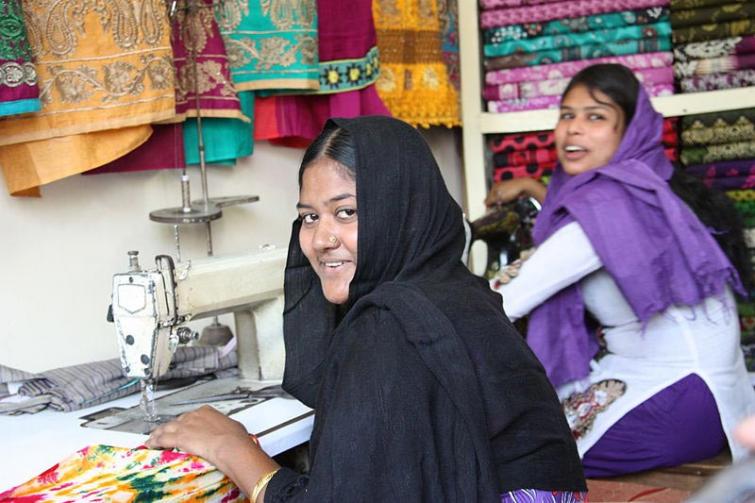
After Rana Plaza factory collapse in Bangladesh, have conditions in garment factories improved?
Kolkata, Oct 12 (IBNS): Worker safety and working conditions in factories that supply fast fashion and garments to some of the world’s biggest brands remain ‘fragile’ despite increased vigilance since the 2013 Rana Plaza disaster in Bangladesh, according to a recently concluded research.
The Rana Plaza factory collapse in Bangladesh killed more than 1100 people and shocked the world, increasing pressure to improve safety in factories supplying large retailers and brands.
An international research project found a positive safety response to the unprecedented disaster and some improvement in labour standards but no “systemic change” that would lift workers out of hardship.
According to the study, most firms faced "weak long-term incentives to act responsibly towards supply chain partners because of inadequate public regulation and the absence of a crisis that might galvanise public attention and encourage stakeholder pressure."
The five-year Garment Supply Chain Governance project involved researchers from several countries investigating the responses of managers from 79 lead firms in Australia, Germany, Sweden and the UK, 152 Bangladeshi garment factory managers and 1500 garment workers.
A further 120 stakeholders from government, non-government organisations, unions and other organisations were interviewed.
Following the disaster, an Accord was agreed with international unions to improve safety – chaired by the International Labour Organisation and signed by more than 200 companies. A smaller Alliance for Bangladesh Worker Safety was formed by 30 (mostly US) brands and retailers.
The researchers found that:
Firms supported improved factory safety, but market pressure meant that factories had to absorb these costs without increasing prices.
Although firms participating in the Accord or the Alliance improved factory safety through rigorous inspection and remediation processes, without continuing incentives these improvements may not be sustainable.
The incidence of sweatshops was reduced – but problems of low wages, long working hours, abusive supervision and rejection of unions and collective bargaining led the researchers to characterize these factories as ‘hardship’ workplaces.
Among the researchers’ main recommendations were the following:
Stronger public regulation in advanced countries to level the competitive field by requiring firms to promote improvements in suppliers’ safety and other labour standards.
Increase opportunities for workers to have a voice – preferably through legally recognised independent trade unions and collective bargaining.
According to UNSW Business School Professor Steve Frenkel, co-leader of the research project, “Current modern slavery legislation in Australia and the UK is too weak to make a difference. To provide minimum labour standards in supplier factories, governments in Australia and other advanced countries should agree to extend legislation requiring firms to publicly disclose their suppliers, promote these standards among their suppliers and report annually on the success or otherwise of their efforts.”
Sydney based UNSW is a leading research and teaching universities of Australia, offering Undergraduate, Post Graduate studies and Research in Business, Commerce, IT, Engineering, Design & Architecture.
(Reporting by Julian Lorkin)
Support Our Journalism
We cannot do without you.. your contribution supports unbiased journalism
IBNS is not driven by any ism- not wokeism, not racism, not skewed secularism, not hyper right-wing or left liberal ideals, nor by any hardline religious beliefs or hyper nationalism. We want to serve you good old objective news, as they are. We do not judge or preach. We let people decide for themselves. We only try to present factual and well-sourced news.







